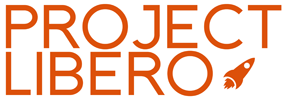This is the 2nd in a short series of blogs informed by a day’s workshop on Narrative Coaching with Dr David Drake.
How does one measure time? Is it via the precision of an atomic clock or the passing of the seasons. Maybe you divide time in to work and play or night and day? There certainly seems to be a relentless pressure on our time. Many of the devices invented were thought of in order to save us time, washing machines for example or computers. Many of us live in a world predominantly organised by chunks of time, punctuated by deadlines, many of them not of our own making.
It was interesting therefore to hear David state that
“Time is elastic, its about the quality of our experience, not the duration”
David was talking about how clients order time in their memory but I want to focus on what it said to me as a coach.
There is a lot of talk within coaching circles about the optimal duration for a coaching conversation. Is it an hour, maybe more, or perhaps just 30 minutes? Some of that discussion seems inexorably linked to pricing models. (A discussion I won’t get in to here).
Let’s look a little deeper though. When I started coaching I was always concerned about having a killer question, I put a lot of pressure on myself to say the “right thing”. I wanted to know lots of models so that I had resources at my disposal to help any client in any situation. Imagine my consternation then when my coaching training had us starting in two minute chunks. What can you say in two minutes? I mean that’s what, one question? The prospect of moving up to at least five minutes was a tantalising dream. Yet the more I did it, the easier it became. Just being there with the client. Noticing what was going on for them. Checking their physiology or breathing. Realising when a question would be an intrusion. Slowly but surely I started to get results just by focussing on the quality of the discussion.
As the course progressed we moved up to ten, twenty and thirty minute slots. At each juncture the extra time seemed like an impossible luxury. I learned to coach in an arc of time, beginning to rely on an internal time rather than watching the clock. Clients talked of how they felt truly seen and listened to. (So much so that it has become a central tenet of my coaching practice, as evidenced by my film).
The final thought I will leave you with is this. During coaching, many clients have “lightbulb moments” or “clarity” on long standing issues. Problems that these clients have often wrestled with for a number of years. The passing of time doesn’t make the difference in these cases, it is the quality of the coaching, the listening, of both parties showing up with a shared intent.
Which leads me nicely on to this week’s call to action. What can you do to improve the quality of your coaching conversations, to use each “unforgiving minute”* to best effect?
*Kipling – If

Got me to thinking.
Reblogged this on Halls are made for Madness and commented:
Something for everyone here.